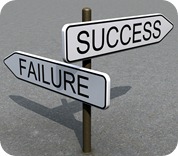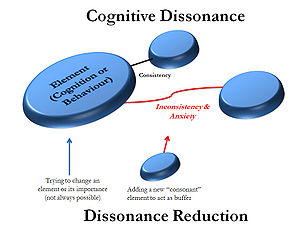 How much time should you spend evaluating any given solution? As is often the case, there is no single answer to this question. The formula I like to apply requires you to at least estimate how long you plan on using the solution. Short term solutions generally don’t take much time to figure out. It goes without saying that nothing core to your business should ever be a short term solution. If so, you are asking for trouble.
How much time should you spend evaluating any given solution? As is often the case, there is no single answer to this question. The formula I like to apply requires you to at least estimate how long you plan on using the solution. Short term solutions generally don’t take much time to figure out. It goes without saying that nothing core to your business should ever be a short term solution. If so, you are asking for trouble.
It’s easy to cancel out the value of this type of decision by taking too much time to make it. The price is opportunity cost and the actual time of those involved in the decision making process. Remember, time is money. In these instances where a ‘good enough’ solution is needed, spend no more time than that which equates to one unit of the purchase (i.e., one month’s phone service, one snow tire, etc.) and always error on the side of safety. This will eliminate paralysis by analysis.
 For a longer term solution, you’ll want to do your due diligence but be careful not to be penny-wise pound-foolish. Doing this could turn your long term solution into a short term one. I learned the hard way when I went with cheap hosting. Intuitively, the larger ticket the item the less expensive the time used to evaluate it with respect to the cost of a bad decision. For this reason, making decisions of this nature are traditionally much more stressful.
For a longer term solution, you’ll want to do your due diligence but be careful not to be penny-wise pound-foolish. Doing this could turn your long term solution into a short term one. I learned the hard way when I went with cheap hosting. Intuitively, the larger ticket the item the less expensive the time used to evaluate it with respect to the cost of a bad decision. For this reason, making decisions of this nature are traditionally much more stressful. ![]() Unfortunately, I don’t have a simple formula for this. I really comes down to doing it as well as you can as quickly as you need to do it.
Unfortunately, I don’t have a simple formula for this. I really comes down to doing it as well as you can as quickly as you need to do it.
 For either of these types of decisions you can see how you might drive yourself crazy hoping you’ve made the right choice. A third possibility is you can enlist the help of an expert you know and trust, paid or unpaid, to give you the answer. For many, an advisor is not only a cost effective method but it saves you the cognitive dissonance associated with being unhappy with your own judgment. I think this is why companies like Accenture and the like are able to thrive. They are paid to make decisions and know best practices. Oh, and then you also have someone to blame besides yourself if things don’t turn out as expected. They are expensive though so they tend to stick to large scale projects.
For either of these types of decisions you can see how you might drive yourself crazy hoping you’ve made the right choice. A third possibility is you can enlist the help of an expert you know and trust, paid or unpaid, to give you the answer. For many, an advisor is not only a cost effective method but it saves you the cognitive dissonance associated with being unhappy with your own judgment. I think this is why companies like Accenture and the like are able to thrive. They are paid to make decisions and know best practices. Oh, and then you also have someone to blame besides yourself if things don’t turn out as expected. They are expensive though so they tend to stick to large scale projects.
 For most, unless you really are interested in learning about the specific topic, it’s not worth the time and energy to learn everything you need to know to make a good decision – one time. This is one of the most solid value propositions I can think of for a real estate agent. The average person buys a new home every 7 years. To learn everything there is to know about any local market (pricing, valuation, negotiations, local market data, schools, etc.) could take months to make the largest, most important financial decision of your life. By the time you are ready to do it again you will have to start all over again since the market has changed and you are probably moving to another area. That’s a lot of work for a one time deal. This is the true value an agent brings to the table – not knowing where the listing is. An agent that can save you 10+% is worth the 6% they charge. Is it a big pile of money, yes. But that’s for another post.
For most, unless you really are interested in learning about the specific topic, it’s not worth the time and energy to learn everything you need to know to make a good decision – one time. This is one of the most solid value propositions I can think of for a real estate agent. The average person buys a new home every 7 years. To learn everything there is to know about any local market (pricing, valuation, negotiations, local market data, schools, etc.) could take months to make the largest, most important financial decision of your life. By the time you are ready to do it again you will have to start all over again since the market has changed and you are probably moving to another area. That’s a lot of work for a one time deal. This is the true value an agent brings to the table – not knowing where the listing is. An agent that can save you 10+% is worth the 6% they charge. Is it a big pile of money, yes. But that’s for another post.
After all is said and done, you can take solace in the fact that if what you are looking to decide on is tech related, you will have another shot at making the decision in a few years when what you have picked becomes obsolete and you need a different set of requirements. For that reason, it’s worth it to consider outsourcing some of this stuff but I digress. The most important takeaway here is that you have to make the best decision possible at that point in time, given the information at hand. Better information = better decision.
-PH
Related articles
- Developing Intuitive Thinking for Making Effective Decisions (blogcritics.org)
- How to Manage Your Mood to Improve Decision Making Ability (proborrower.wordpress.com)
- FuseDiligence – Practical Decision Making Software for Today’s Virtual Teams (prweb.com)
- Instinct or Intuition? Your Choice Determines your Success in Product Innovation (customerthink.com)
